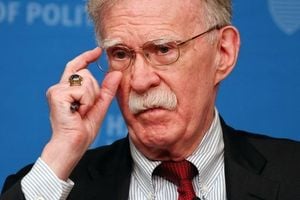In a rare diplomatic development, Afghanistan’s Taliban foreign minister, Amir Khan Muttaqi, is set to visit India this month after the United Nations Security Council Committee temporarily lifted a long-standing travel ban. The announcement, confirmed by Kabul’s foreign ministry to AFP on October 4, 2025, marks the first time a senior Taliban leader will step foot in India since the group’s return to power in 2021. The visit, scheduled for October 9 to 16, will take place after the Moscow summit on October 7, which brings together representatives from China, India, Iran, and several Central Asian nations.
This diplomatic overture comes at a time of heightened uncertainty and rumor swirling around Afghanistan’s international relations, internal stability, and humanitarian crisis. According to AFP, the UN exemption was specifically granted to allow Muttaqi’s travel to New Delhi, a move that signals a possible thaw in India-Afghanistan relations after years of tension and disengagement. India’s own envoy on Afghanistan, Anand Prakash, had traveled to Kabul earlier in April 2025 to discuss political and trade issues, laying the groundwork for this latest high-level contact.
But the context of the visit is anything but routine. Just days before the announcement, Taliban authorities imposed a nationwide internet and mobile phone blackout, plunging Afghanistan into a communications void for 48 hours. The government has yet to publicly explain the reason for the telecoms blackout, a move that has only fueled speculation and concern both within Afghanistan and abroad. The European Parliament, in a statement ahead of its October 7 session to discuss Afghanistan, highlighted the blackout as a worrying sign of the country’s deteriorating situation.
The European Parliament’s upcoming debate will focus on how the European Union can support Afghan women and communities devastated by a recent earthquake. At the end of August 2025, a 6.0-magnitude quake struck Afghanistan, killing at least 2,200 people, according to local authorities. The Islamic Emirate, as the Taliban government calls itself, has appealed for international aid in the wake of the disaster. Yet, as the European Parliament pointed out, the Taliban’s restrictive policies—especially those targeting women and ethnic or religious minorities—have severely limited global engagement and resulted in a sharp decline in donor support, deepening the country’s humanitarian crisis.
“The Islamic Emirate, governing Afghanistan and recognized only by Russia, appealed for international aid,” the European Parliament noted, underscoring the regime’s diplomatic isolation. Russia remains the only country to have officially recognized the Taliban government, while most nations, including India and EU members, maintain only limited contacts and advise against travel to Afghanistan due to ongoing security and human rights concerns.
Meanwhile, the rumor mill in Afghanistan has been working overtime. On October 4, two senior U.S. officials categorically denied widespread claims that American troops had returned to Afghanistan or regained control of the Bagram airbase, the former hub of U.S. military operations north of Kabul. According to Khaama Press, a Pentagon source stated unequivocally that “no U.S. troops are in Afghanistan,” while a diplomatic official in Washington confirmed there are no plans or negotiations to re-establish a military presence in the country.
These denials followed days of speculation on social media and local outlets, which suggested that the Taliban had ordered residents living near Bagram to evacuate—rumors that gained traction amid the nationwide communications blackout. The speculation reached a fever pitch after former U.S. President Donald Trump claimed that his administration might negotiate with the Taliban to “reclaim” the Bagram base, calling it strategically vital for countering China and combating ISIS. Trump warned of “serious consequences” if the Taliban refused to hand over the facility.
The Taliban’s military leadership responded swiftly, rejecting all reports of handing over Bagram airbase or transferring prisoners as “fabricated.” They insisted that Bagram remains firmly under Taliban control, and there are no plans to cede it to any foreign power. Despite official denials from both Washington and Kabul, some political activists continue to speculate about a possible secret arrangement between the Taliban and the U.S., potentially brokered through intermediaries like Qatar, the UAE, or Uzbekistan. However, as Foreign Policy magazine recently observed, while a negotiated U.S. return to Bagram “cannot be ruled out,” current political and security conditions make such a move extremely unlikely.
On the humanitarian front, the Taliban government has tried to showcase a more pragmatic face. In recent weeks, they released several American and British prisoners, signaling a desire for improved relations with the West, particularly the United States. Nevertheless, most international observers remain skeptical, pointing to the regime’s continued repression of women and minorities, as well as its opaque decision-making—exemplified by the unexplained telecoms blackout.
For India, the Taliban foreign minister’s visit is a diplomatic tightrope. On one hand, New Delhi has strategic interests in Afghanistan, especially in the context of regional rivalries with China and Pakistan. On the other, India has historically supported the previous Afghan government and remains wary of legitimizing the Taliban’s rule. The visit could open doors for dialogue on trade, counterterrorism, and humanitarian cooperation, but it also risks criticism from those who argue that engaging the Taliban rewards their hardline policies.
The European Parliament’s upcoming vote on October 9 will be closely watched, as it may signal a shift in the EU’s approach to Afghanistan. Lawmakers are expected to debate not only humanitarian aid but also the broader question of how to engage with a regime that, so far, has resisted calls for greater inclusivity and respect for human rights. The outcome could influence aid flows and diplomatic contacts in the months ahead.
Back in Afghanistan, ordinary citizens continue to grapple with uncertainty. The recent earthquake, the communications blackout, and the ongoing rumors about foreign intervention have created an atmosphere of anxiety and confusion. While the Taliban government insists it wants “good relations with other countries, notably the United States,” as reported by AFP, the path to international acceptance remains steep and fraught with obstacles.
As Afghanistan stands at a crossroads, the coming weeks will reveal whether diplomatic gestures—like Muttaqi’s visit to India—can translate into meaningful progress, or whether the cycle of isolation and crisis will persist. The world is watching, and for millions of Afghans, the stakes could not be higher.





